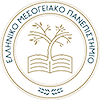Module Title: ADVANCED TOPICS IN BIOMEDICAL INFORMATICS
Teaching hours:
Credits: 7,5
Semester: 2nd
Instructor:
Course Objectives
The course focuses on advanced topics of Biomedical Informatics. It consists of three main sections. The module of biomedical informatics, the eHealth & mHealth module and the medical decision support systems.
The first section focuses on selected areas from:
- Multimedia Biomedical Information: Biomedical Signs and Medical Imaging, and related technology standards.
- MedicalkKnowledge representation, and Biomedical Ontologies
- Wireless sensor networks and their application in biomedicine (Body Area Networks (BAN) and related technology standards)
- Systems and services for the prevention or management of chronic diseases
- Services and technologies for Active and Health Aging. Each year the course will focus on some of the following: fall detection, behavioral estimation, activity recognition, gait and posture estimation.
The second section focuses on advanced topics in the areas:
- Methodologies for the application of statistical principles, signal processing, decision making, artificial intelligence methods and simulation and prediction models to support medical decisions.
- Design and development of Decision Support Systems (DSS) for diagnostic and therapeutic reasons.
- Methods for evaluating and evaluating clinical DSS.
The third module focuses on the area of Affective Computing with applications in the field of Biomedicine.
In this section, the course focuses on selected themes of technologies and systems developed to assist people to measure and communicate emotions. The topics that are discussed in this section may differ from year to year and may include areas such as: communication of human emotion through facial expressions, voice, physiology or behavior; computer systems or agents that exhibit emotional intelligence skills? Application of affective computing technologies and solutions in the field of biomedical informatics.
LABORATORY
The laboratory part of the course focuses on the practical application of the above fields. Emphasis is given to: a) implementation and familiarization with the technological standards of the area; b) design and implementation of modern IT systems and applications relevant to the field of biomedicine; and c) design and development of multimedia, interactive mobile computing services (eHealth & mHealth services).
The course requires systematic reading and discussion of relevant scientific articles on a weekly basis as well as the implementation of a demanding team work.
TEACHING and LEARNING METHODOLOGY – EVALUATION
| TEACHNING METHODOLOGY Πρόσωπο με πρόσωπο, Εξ αποστάσεως εκπαίδευση κ.λπ. |
Face to Face in the Classroom | ||||||||||||||||||||||||
| USE OF INFORMATION AND COMMUNICATION TECHNOLOGIESΧρήση Τ.Π.Ε. στη Διδασκαλία, στην Εργαστηριακή Εκπαίδευση, στην Επικοινωνία με τους φοιτητές |
|
||||||||||||||||||||||||
| Structure of the Teaching Περιγράφονται αναλυτικά ο τρόπος και μέθοδοι διδασκαλίας. Διαλέξεις, Σεμινάρια, Εργαστηριακή Άσκηση, Άσκηση Πεδίου, Μελέτη & ανάλυση βιβλιογραφίας, Φροντιστήριο, Πρακτική (Τοποθέτηση), Κλινική Άσκηση, Καλλιτεχνικό Εργαστήριο, Διαδραστική διδασκαλία, Εκπαιδευτικές επισκέψεις, Εκπόνηση μελέτης (project), Συγγραφή εργασίας / εργασιών, Καλλιτεχνική δημιουργία, κ.λπ.Αναγράφονται οι ώρες μελέτης του φοιτητή για κάθε μαθησιακή δραστηριότητα καθώς και οι ώρες μη καθοδηγούμενης μελέτης σύμφωνα με τις αρχές του ECTS |
|
||||||||||||||||||||||||
| Methods of Evaluation Περιγραφή της διαδικασίας αξιολόγησης Γλώσσα Αξιολόγησης, Μέθοδοι αξιολόγησης, Διαμορφωτική ή Συμπερασματική, Δοκιμασία Πολλαπλής Επιλογής, Ερωτήσεις Σύντομης Απάντησης, Ερωτήσεις Ανάπτυξης Δοκιμίων, Επίλυση Προβλημάτων, Γραπτή Εργασία, Έκθεση / Αναφορά, Προφορική Εξέταση, Δημόσια Παρουσίαση, Εργαστηριακή Εργασία, Κλινική Εξέταση Ασθενούς, Καλλιτεχνική Ερμηνεία, Άλλη / Άλλες Αναφέρονται ρητά προσδιορισμένα κριτήρια αξιολόγησης και εάν και που είναι προσβάσιμα από τους φοιτητές. |
Homework and Individual Assignments (reading/response) (30%) Final project and presentation (50%) Classroom participation (20%)The evaluation criteria are clearly stated in the analytical description of the course located in the relevant area of eClass. |
SUGGESTED BIBLIOGRAPHY:
- Artificial Intelligence and Experts Systems, E. Keravnou, Hellenic Open University, (eBook in Greek)
– J.H. van Bemmel, and M.A. Musen (Eds.), Handbook of Medical Informatics, Springer, Houten / Diegem (1997) - Notes from MIT Open Courceware on Affective Computing (https://ocw.mit.edu/courses/media-arts-and-sciences/mas-630-affective-computing-fall-2015/index.htm)
- Affective Computing and Sentiment Analysis, K. Ahmad, 2011 (eBook)
- Lecture slides will be available on eClass.
- Appropriate scientific articles will be given as material in each thematic topic of the course.
